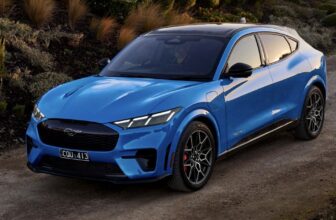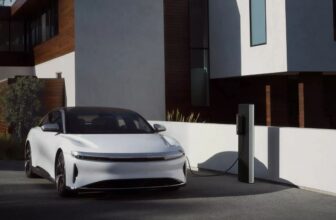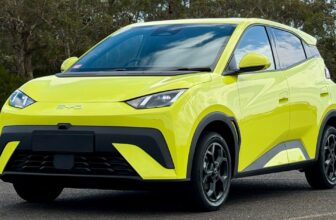
Try our newest merchandise
So that you’re eager about becoming a member of the electrical revolution, huh? With EVs in all places out of your neighbor’s driveway to the grocery retailer car parking zone, it’s arduous to not marvel in the event you’re lacking out.
The reality is, electrical autos aren’t a one-size-fits-all resolution, and that’s completely okay. Whether or not you’re a every day commuter uninterested in fuel station stops or a street journey fanatic who wants most flexibility, the “proper” reply relies upon totally in your distinctive scenario. Let’s stroll by twelve key components that’ll assist you determine if an EV is sensible to your life, your pockets, and your driving type.
Consider this as a pleasant chat over espresso, minus the espresso and with extra battery discuss.
Your Day by day Commute Distance
Let’s begin with the apparent one: how far do you truly drive every day? The typical American commute is round 40 miles spherical journey, which is mainly a stroll within the park for any trendy EV.
Most new electrical autos supply 250-350 miles of vary (a way longer), that means you possibly can go almost per week with out plugging in in the event you’re doing typical every day driving. In case your commute is beneath 50 miles every day, an EV is truthfully a no brainer from a sensible standpoint. You’ll get up to a “full tank” each morning, by no means make these annoying detours to fuel stations, and possibly marvel why you didn’t make the change sooner.
Even in the event you’re doing 75-100 miles every day, you’re nonetheless in nice form with most EVs in the marketplace immediately.
Your Dwelling Charging Setup


Right here’s the place actuality will get actual: do you’ve got a storage or devoted parking spot with electrical entry? Dwelling charging is the key sauce that makes EV possession actually handy, and about 80% of EV charging occurs at house.
For those who can set up a Degree 2 charger (240V, the identical outlet your dryer makes use of), you’ll add roughly 25-30 miles of vary per hour of charging. Meaning in a single day charging simply covers most individuals’s every day wants, and also you’re mainly beginning every day with a full battery. For house dwellers or these with out devoted parking, the equation adjustments considerably because you’ll be counting on public charging infrastructure.
It’s not a dealbreaker, nevertheless it does imply planning your charging stops extra such as you’d plan fuel stations, which type of defeats one of many predominant comfort components of EV possession.
The Upfront Price Actuality Test


Let’s discuss cash with out dancing round it: EVs usually price extra upfront than their gas-powered cousins. The typical new EV worth hovers round $55,000, although you will discover strong choices within the $35,000-$45,000 vary, particularly with incentives.
Evaluate that to the common new fuel automotive at roughly $48,000, and sure, there’s a spot. Nonetheless, that is the place the long-term math will get attention-grabbing, as a result of working prices inform a special story totally. Electrical energy is considerably cheaper than fuel (roughly $15 to “refill” an EV versus $50-$70 for fuel), and upkeep prices are dramatically decrease since there’s no oil adjustments, transmission fluid, spark plugs, or exhaust methods to fret about.
Most consultants estimate you’ll break even someplace between 3-6 years of possession, relying on fuel costs and the way a lot you drive.
Your Driving Character


Are you the sort who enjoys the zen of a clean, quiet experience, or do you reside for the rumble of an engine and the texture of substances adjustments? EVs ship prompt torque that’ll pin you to your seat from a stoplight (even “common” EVs really feel fast), however they do it in near-silence.
Some fanatics discover this thrilling and futuristic, whereas others miss the visceral connection of a combustion engine. For those who’re somebody who appreciates expertise, clean acceleration, and the novelty of one-pedal driving (the place regenerative braking does a lot of the work), you’ll most likely love the EV expertise.
On the flip aspect, in the event you’re deeply hooked up to engine sounds, guide transmissions, or the ritual of conventional automotive tradition, you would possibly really feel like one thing’s lacking — and that’s a completely legitimate desire.
Local weather and Climate Issues


Let’s deal with the elephant within the room: sure, chilly climate impacts EV vary, nevertheless it’s not the catastrophe some headlines make it out to be. In freezing temperatures, you would possibly see a 20-40% vary discount, primarily as a result of heating the cabin attracts from the battery. For those who reside in Minnesota or Maine and park outdoors, you’ll positively discover this throughout January.
Nonetheless, many EVs now include warmth pumps and pre-conditioning options that decrease the affect, and bear in mind—fuel vehicles additionally lose effectivity in excessive chilly, you simply don’t give it some thought as a lot. Sizzling climate impacts vary too, however usually much less dramatically than chilly.
The actual query is whether or not your lowered winter vary nonetheless covers your every day wants with comfy margin, as a result of in the event you’re reducing it shut in July, December would possibly get annoying.
Charging Infrastructure in Your Space


Take a fast subject journey (mentally or actually) round your common routes: what number of charging stations do you see? Apps like PlugShare can present you the charging panorama in your space, and it varies wildly by area.
For those who’re in California, the Pacific Northwest, or main metro areas, you’re most likely swimming in charging choices. Rural areas and a few areas within the Midwest or South might need sparser networks, although that is enhancing quickly.
Quick chargers (DC quick charging) can add 100-200 miles in 20-Half-hour, which makes street journeys possible when deliberate proper. Take into consideration your occasional longer drives too — visiting household three states away or that annual seashore journey. In case your routes have first rate charging protection, you’re golden; in the event that they’re charging deserts, you would possibly face some nervousness.
Upkeep Expectations


Right here’s the place EV possession actually shines: your upkeep schedule mainly turns into “rotate tires and add windshield washer fluid.” No oil adjustments each 5,000 miles, no transmission companies, no timing belts, no exhaust system repairs, no spark plugs to exchange.
EVs have fewer than 20 transferring components of their powertrains in comparison with tons of in fuel engines, which interprets to fewer issues that may break. You’ll nonetheless want brake service, however even that’s lowered as a result of regenerative braking does a lot of the work and your brake pads final considerably longer. Over 5 years, common upkeep prices for an EV run about $4,600 in comparison with $9,200 for a fuel automobile.
For those who’re somebody who dreads sudden restore payments or finds the routine of normal oil adjustments annoying, this simplified upkeep image may be surprisingly interesting.
Insurance coverage Prices


Let’s deal with a much less glamorous matter: insurance coverage premiums for EVs usually run about 15-20% increased than comparable fuel autos. The explanations are easy — EVs price extra to buy, their repairs may be pricier (particularly battery injury), and fewer restore retailers are outfitted to work on them.
Nonetheless, this hole is narrowing as EVs grow to be extra widespread and restore networks broaden. Some insurance coverage corporations now supply EV-specific reductions or applications, recognizing that EV drivers usually have fewer accidents (probably as a result of they’re newer vehicles with higher security tech). It’s price buying round particularly mentioning you’re contemplating an EV, as a result of charges differ considerably between insurers.
Consider an additional $200-$400 per 12 months for insurance coverage when doing all of your finances math, although your financial savings on fuel and upkeep will doubtless dwarf this distinction.
Resale Worth Trajectory


The EV resale market remains to be discovering its footing, which creates each alternatives and uncertainties. Early EVs (particularly these with restricted vary) depreciated shortly, however newer fashions with 250+ mile ranges are holding worth a lot better. Tesla has traditionally maintained sturdy resale values (aside from the Cybertruck), whereas another manufacturers have seen steeper depreciation.
The wildcard right here is battery degradation and substitute prices, although trendy EV batteries are proving extra sturdy than early predictions recommended, usually retaining 80-90% capability after 100,000 miles. For those who’re somebody who retains vehicles for 10+ years, resale worth issues much less anyway.
Nonetheless, in the event you commerce in each 3-5 years, it’s price researching particular fashions as a result of there’s actual variance right here — some EVs depreciate like rocks, others maintain regular like their fuel counterparts.
Your Environmental Values


Let’s be trustworthy: for many individuals, environmental affect is a major a part of the EV equation, and that’s fully cheap. EVs produce zero direct emissions, and even accounting for electrical energy era, they’ve a smaller carbon footprint than fuel autos throughout their lifetime in a lot of the U.S.
The environmental profit will increase in case your native grid makes use of renewable power, and it’s getting higher yearly because the grid will get cleaner. If lowering your private environmental affect issues to you, an EV delivers on that entrance fairly clearly. Nonetheless, if environmental issues don’t rank excessive in your precedence listing, that’s okay too—the monetary and comfort components ought to stand on their very own deserves.
The purpose is to be trustworthy about what motivates you, as a result of if environmental advantages are a main driver, that may tip the scales even when another components are borderline.
The Enjoyable Issue


Right here’s one thing that always will get ignored within the sensible evaluation: EVs are genuinely enjoyable to drive. That prompt torque creates a responsiveness that feels virtually telepathic — you suppose “go” and also you’re already going.
The low heart of gravity (due to floor-mounted batteries) makes even family-oriented EVs deal with surprisingly nicely by corners. The quiet cabin means you’ll be able to truly hear your music or have conversations with out shouting, and options like one-pedal driving grow to be second nature shortly. Many EV homeowners report that driving simply feels extra pleasurable and fewer fatiguing, particularly in stop-and-go site visitors. For those who’re somebody who views driving as a chore to be endured, an EV may not change that essentially, however in the event you admire the expertise of driving itself, the EV persona would possibly shock you.
Check driving is completely important right here as a result of the expertise is totally different sufficient that you really want to really feel it your self.
Conclusion


So, is an EV price it for you? For those who’ve obtained predictable every day driving beneath 100 miles, house charging functionality, and may navigate the upfront price with accessible incentives, you’re taking a look at a robust case for electrical. The candy spot proper now might be suburban or city drivers with garages, moderate-to-long commutes, and plans to maintain their automobile for a number of years.
Nonetheless, in the event you’re an house dweller with out charging entry, continuously drive 300+ miles in a day, or reside in an space with sparse charging infrastructure, the timing may not be fairly proper but—although it’s getting nearer yearly.
The great thing about this second is that you’ve got choices: the EV market is maturing quickly, with extra fashions at extra worth factors than ever earlier than. Take your time, take a look at drive a couple of totally different fashions, crunch your particular numbers, and belief your intestine about whether or not the expertise resonates along with your life-style and driving preferences







